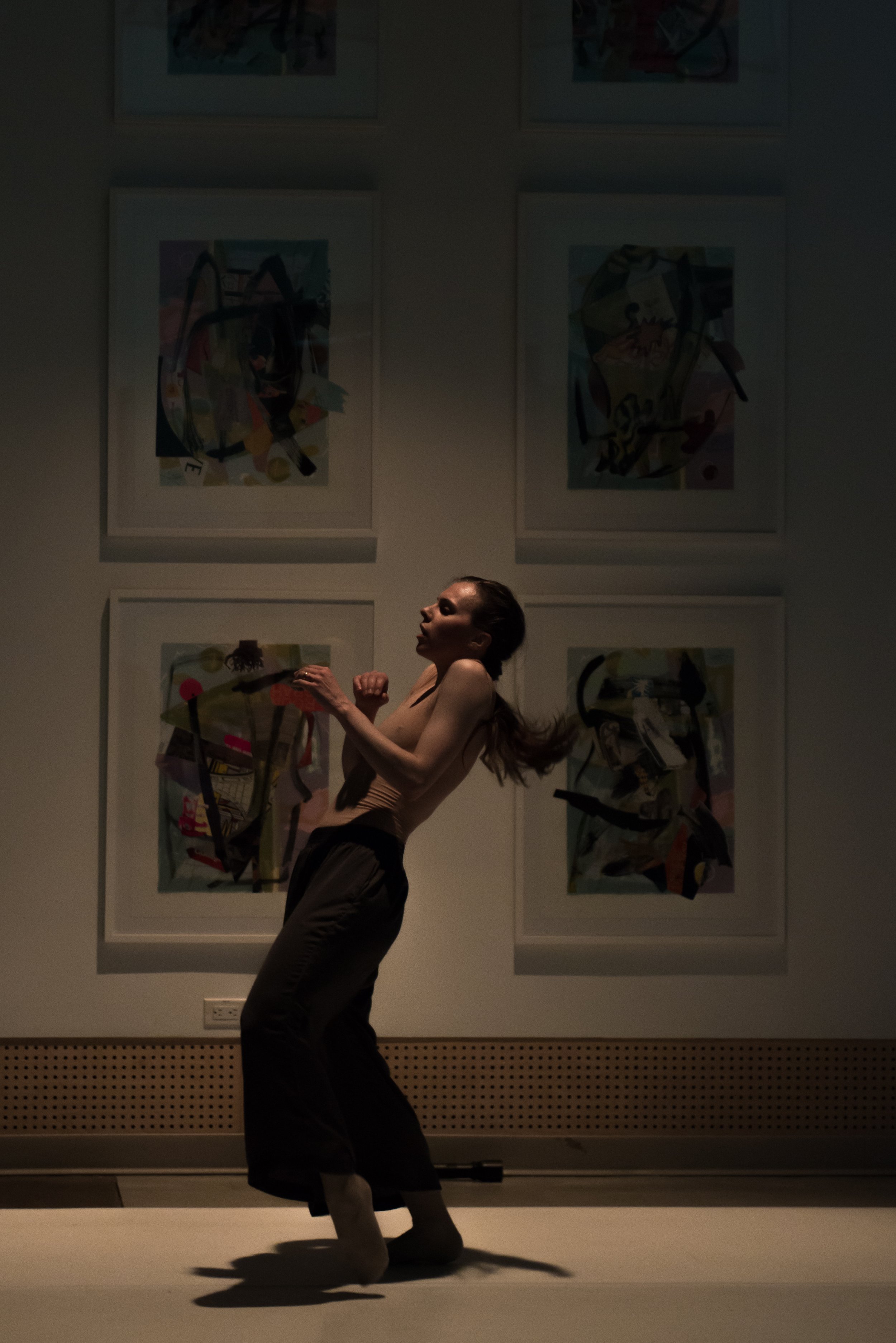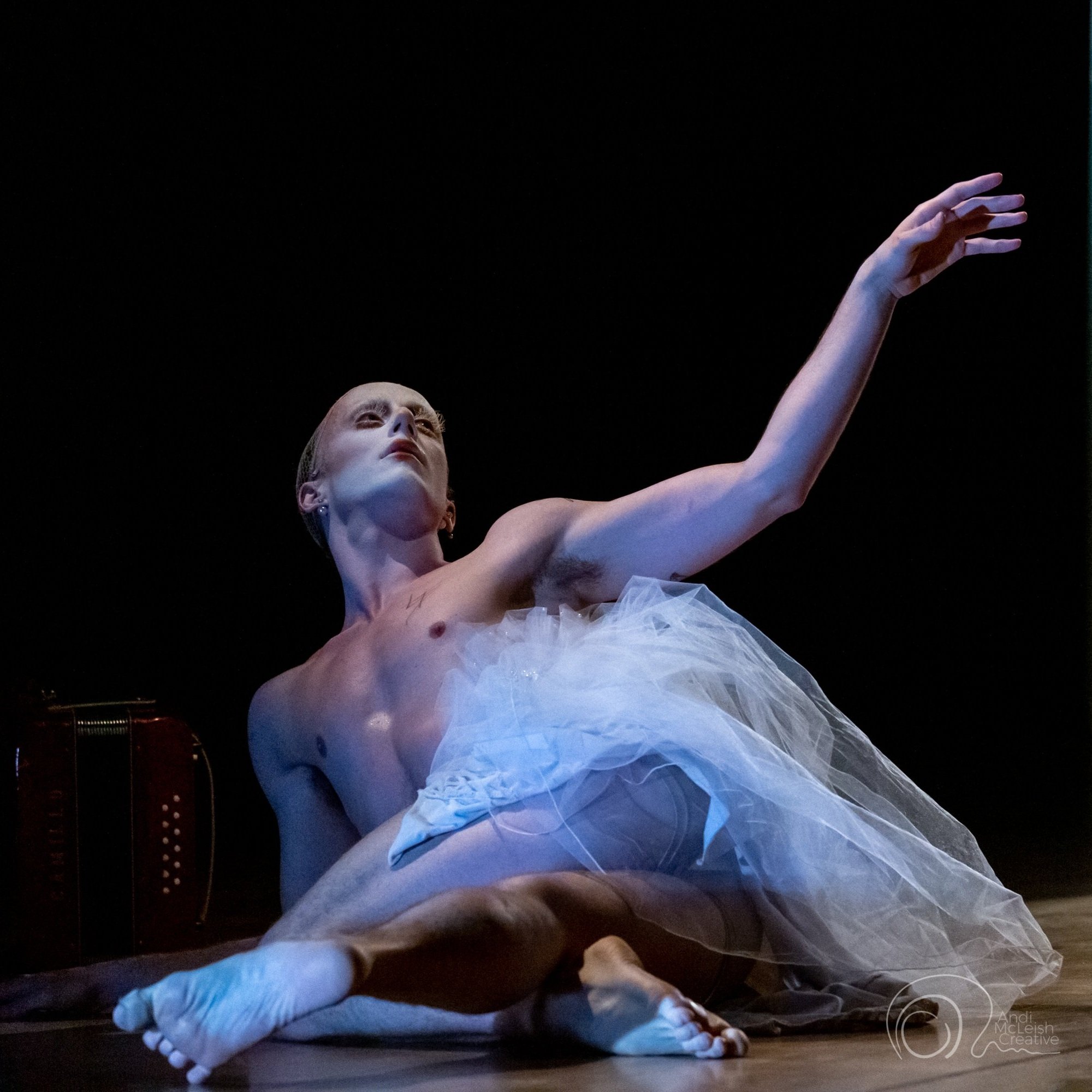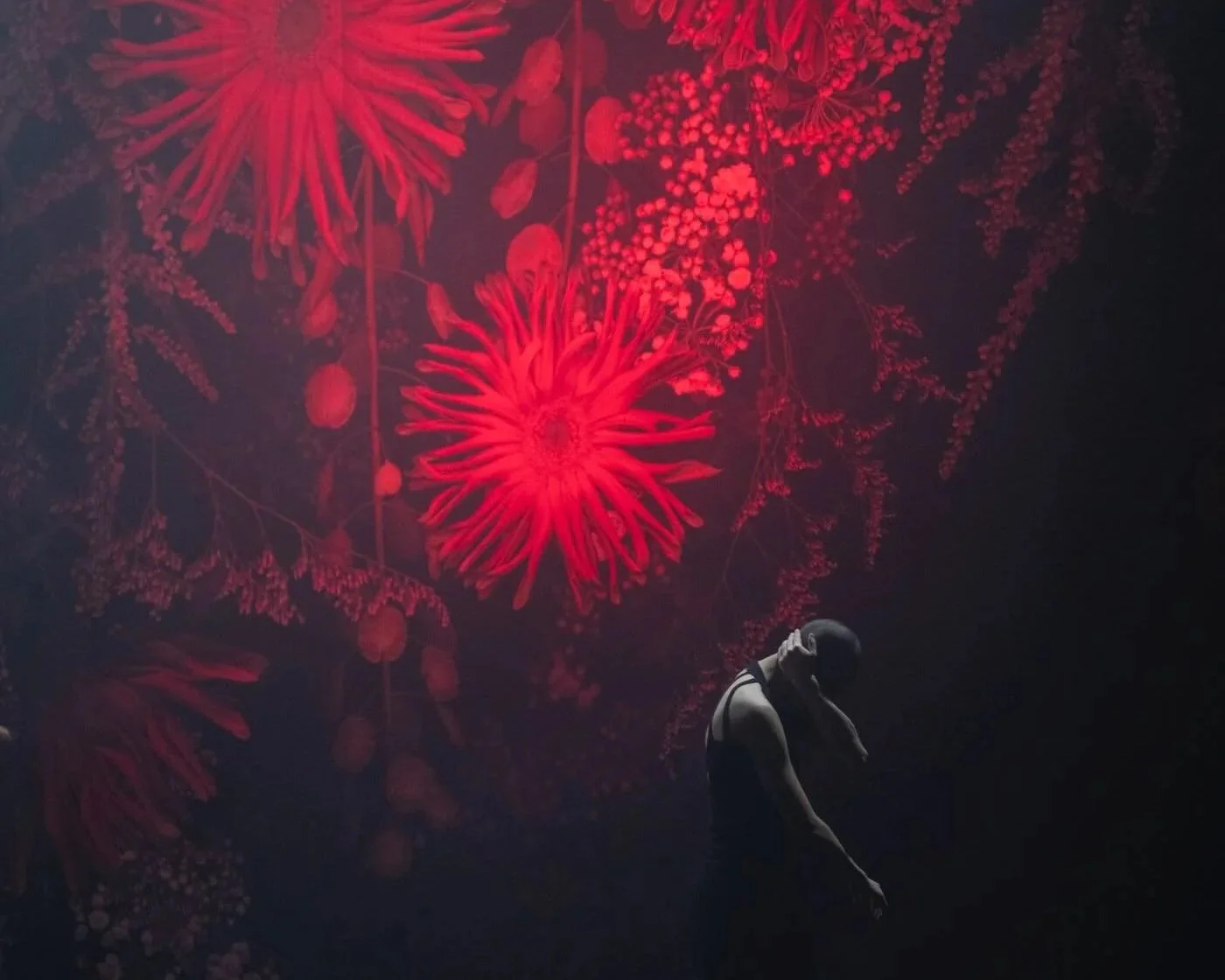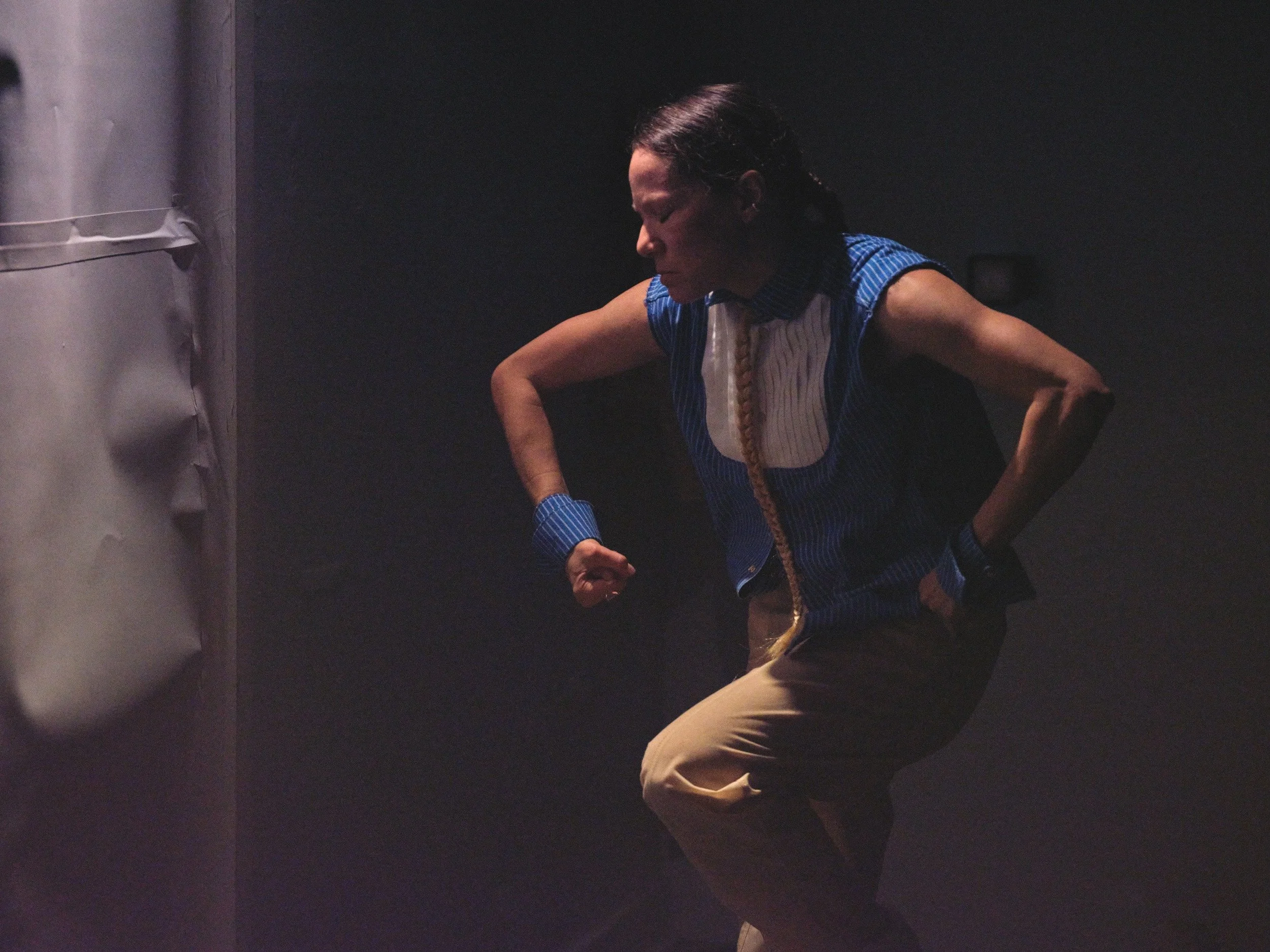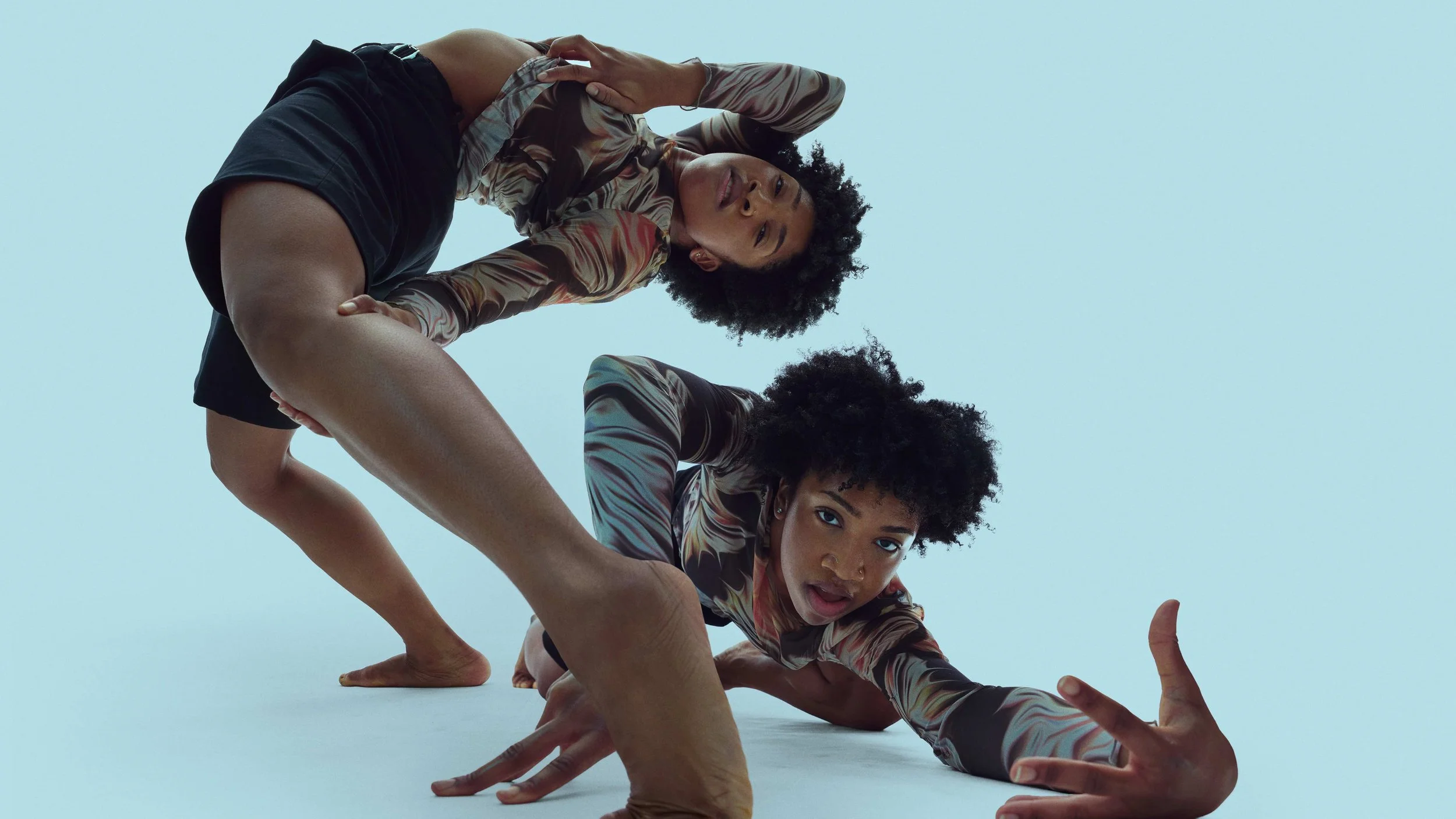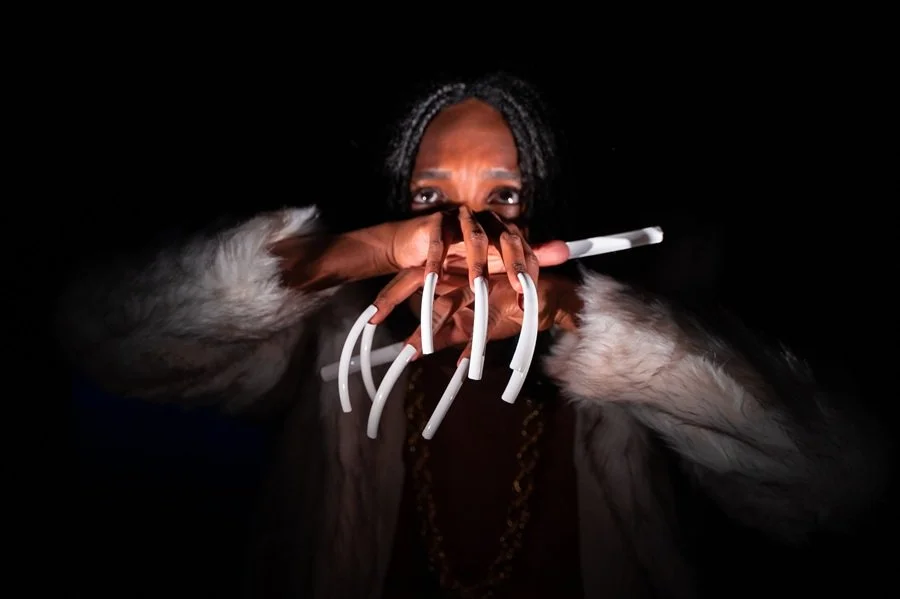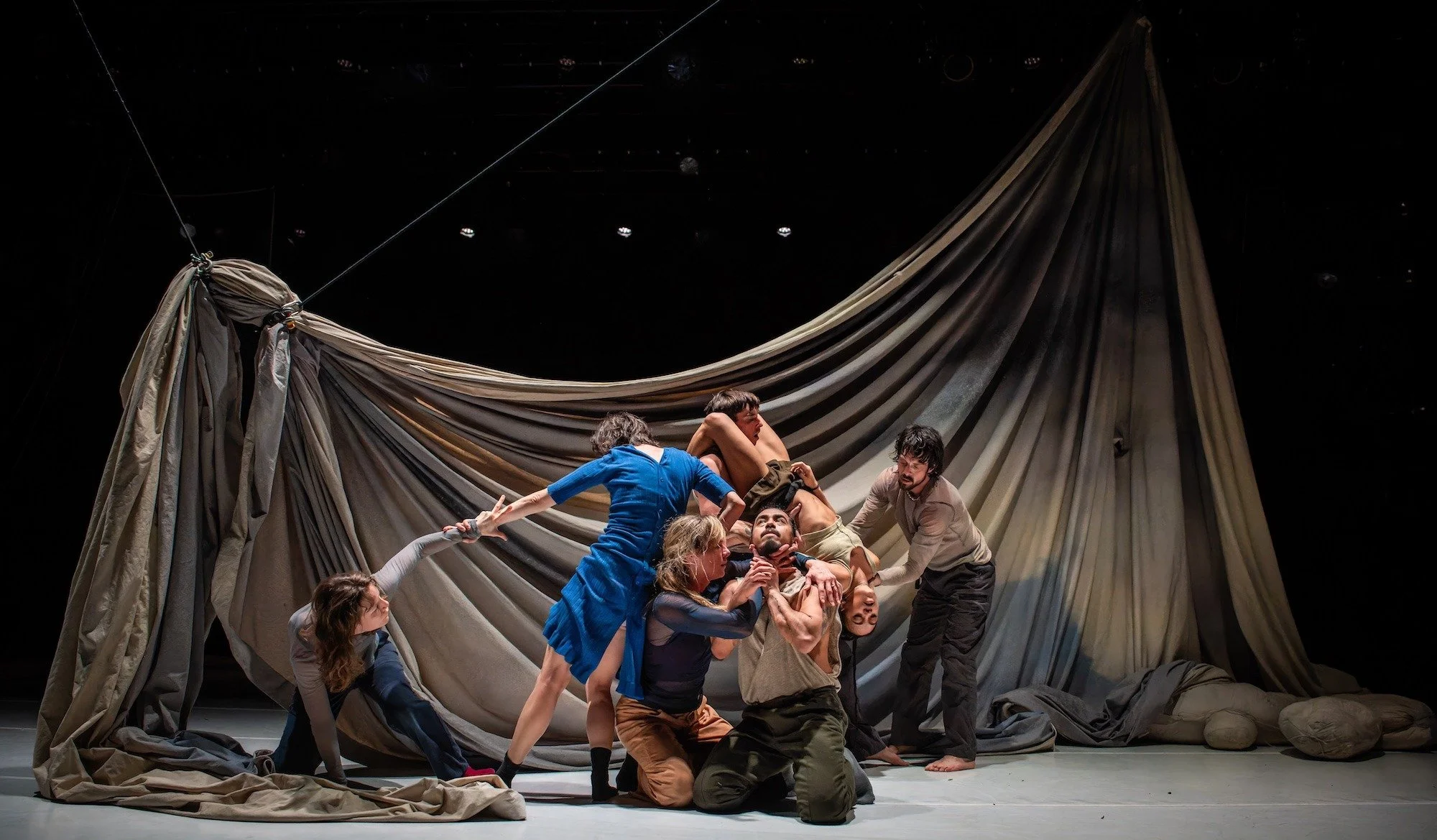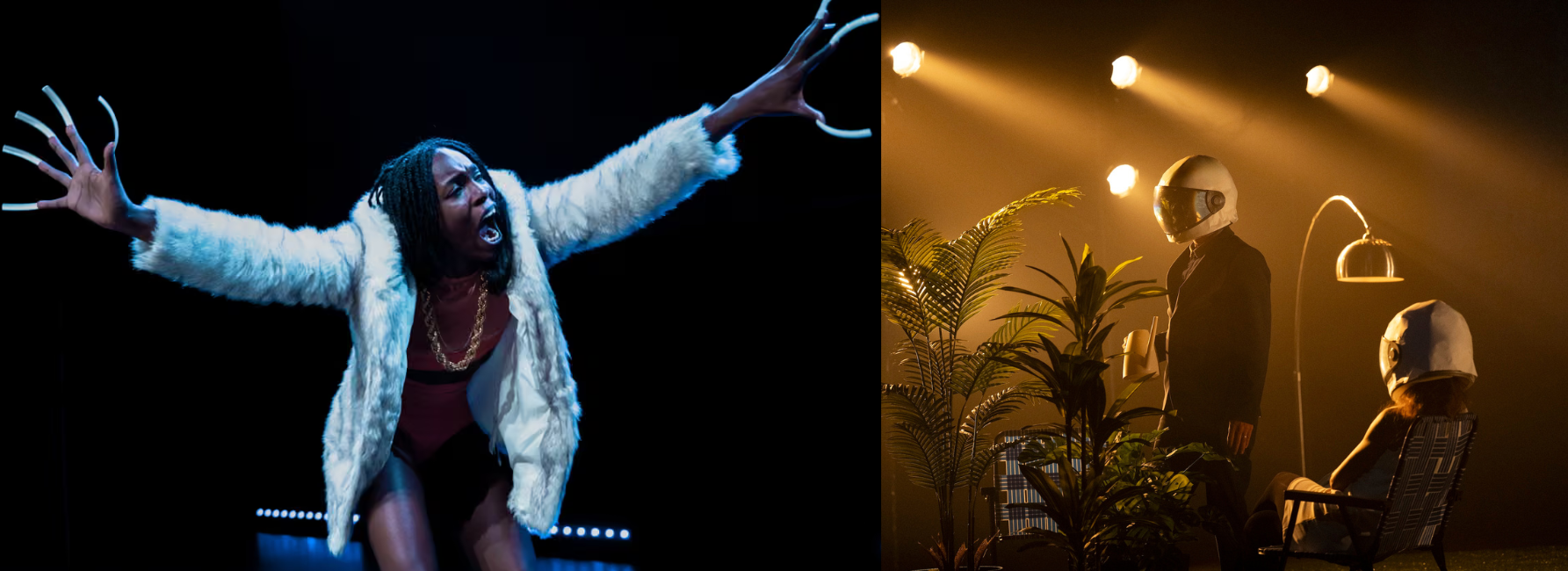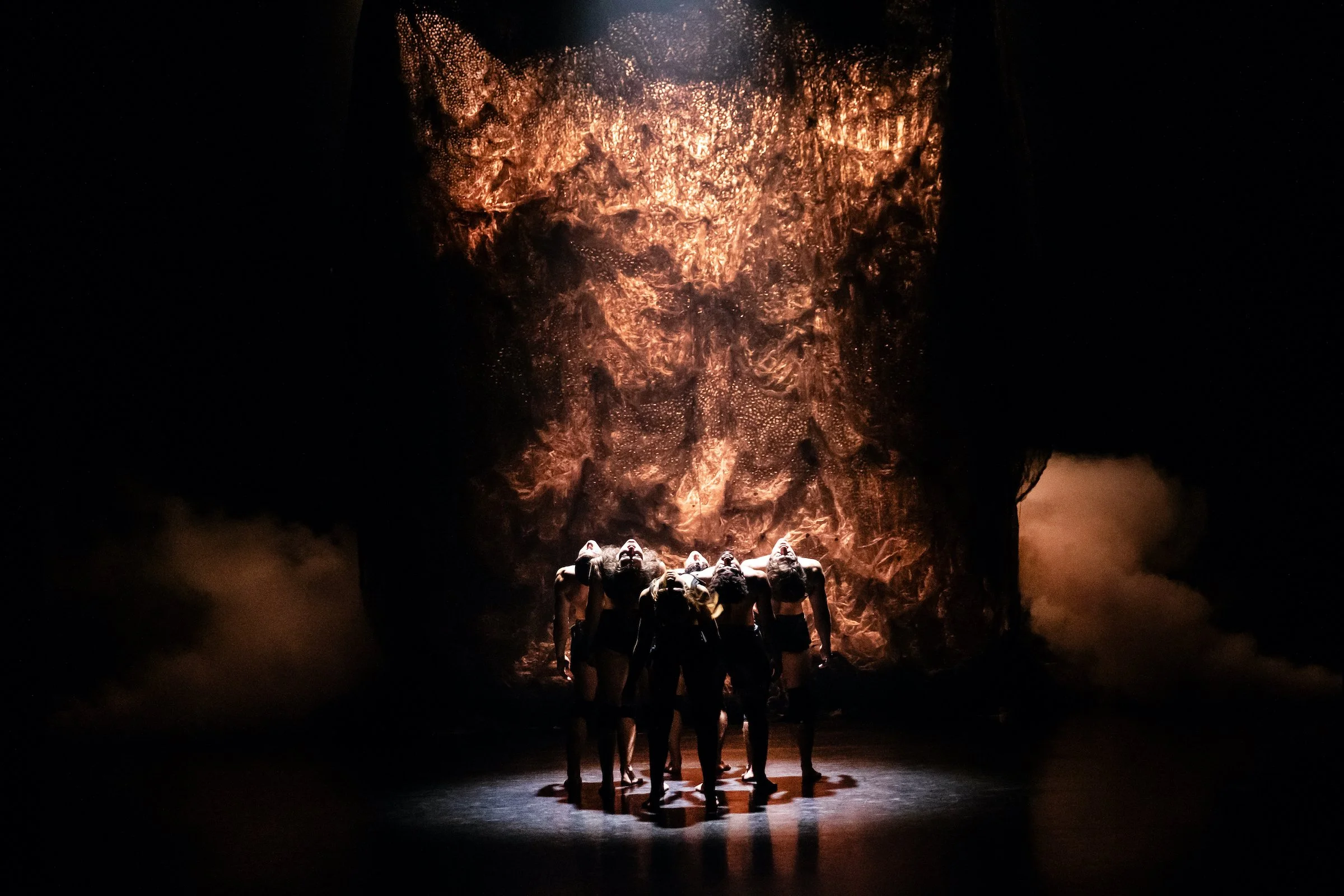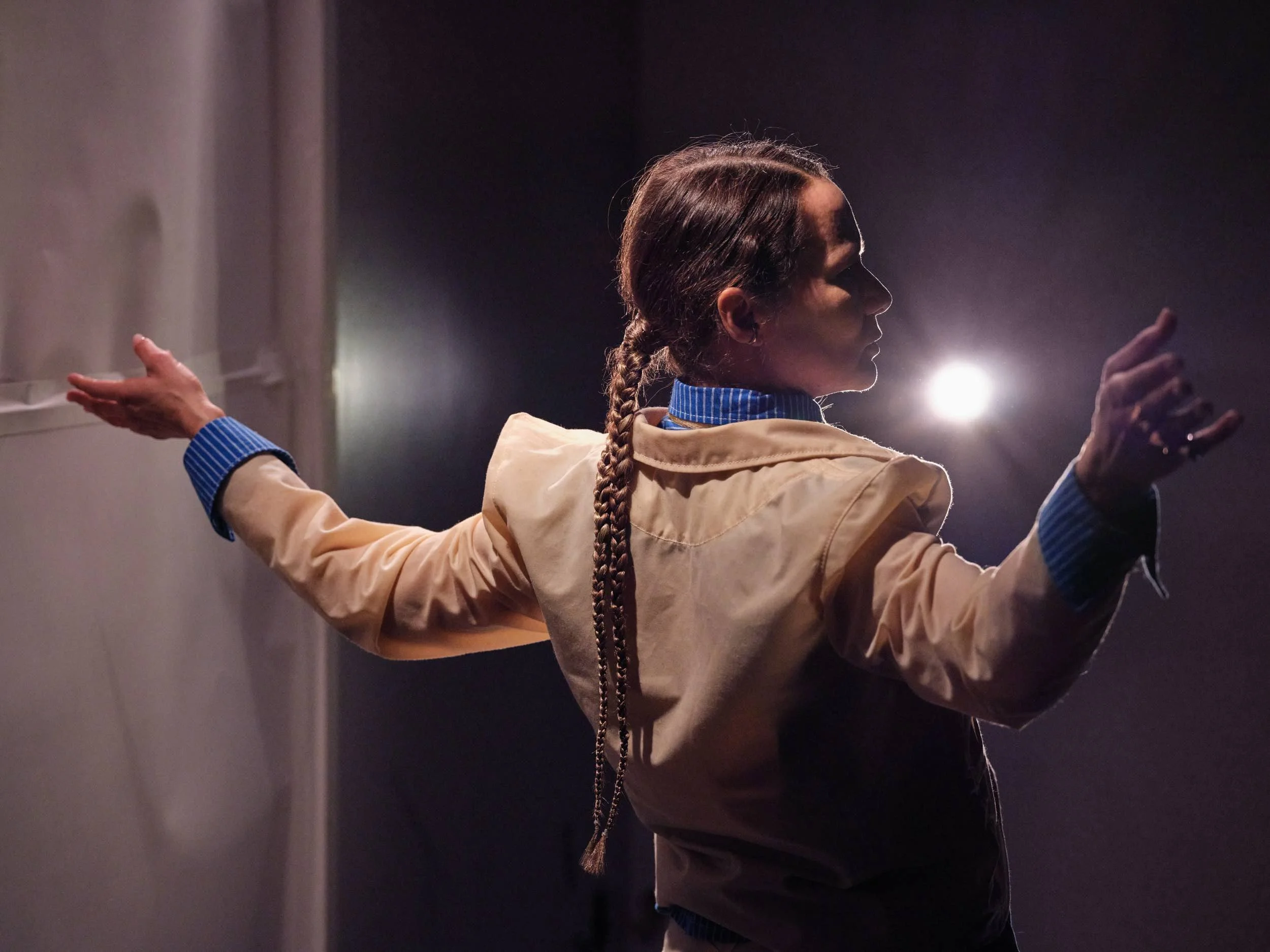Dance review: Two creatively inspired solos explore the joy and struggle of artistic expression at Chutzpah Festival
Alexis Fletcher’s light in the rafters riffs on Tiko Kerr’s paintings, while Idan Cohen’s Solo for Orpheus taps vaudeville, Baroque, and drag
Alexis Fletcher in front of Tiko Kerr’s paintings. Photo by Cindi Wicklund
Ted Littlemore in Solo for Orpheus. Photo by Andi McLeish
The Chutzpah Festival presents light in the rafters and Solo for Orpheus at the Norman and Annette Rothstein Theatre until November 18, streaming November 19 to 22.
ANYONE WHO’S EVER created art—be it a performance, a poem, or a painting—knows it can wash you over with joy, just as easily as it can bring struggle and torment. That’s come into even more relief during the pandemic, when there’s a shortage of venues to show work but hours upon hours of alone time to ruminate on it.
Both sides of that coin find inspired expression in a double bill of short dance solos at the Chutzpah Festival this week.
In her vivid, frenetic light in the rafters, soloist and choreographer Alexis Fletcher embodies and responds to the flurried gestural brush work of veteran Vancouver painter Tiko Kerr. In the second half of the program, dancer Ted Littlemore’s white-powdered, tulle-swathed performer melts down in the spotlight in the atmospheric Solo for Orpheus.
Fletcher’s is the more abstract of the two, using Sylvain Senez’s clever projections to explore the creative process from a multitude of angles. It opens with the dancer scribbling in a notebook, handwritten poetry spreading out on a screen behind her. From there, moving video images fill the projected picture of a wooden frame. First, Fletcher responds to black-and-white footage of symbolic imagery, such as feet climbing steps in an industrial warehouse, and doors opening.
The work really takes off when Kerr’s colourful abstract and Cubist -inspired paintings appear in those frames. In one of the sequences we even see his hands busily applying bright blotches of colour to a sheet of Plexiglas.
Just as his shapes, strokes, and hands move and dart, so does Fletcher. The honed and intensely expressive Ballet BC alumna seems to channel whatever streams of emotion Kerr taps in his highly gestural painting. At times her body arches like curved brush strokes, or turns like a shifting idea; at others her feet step manically on the floor, a bit like an outpouring of mark-making. Those gushes and surges of inspiration are also echoed in the score’s freeform strings and found sounds.
Kerr is deeply interested in the way that art offers opportunities for its viewers to exercise their empathy muscles, and Fletcher has found a deeply empathetic way to connect to the artist’s thoughts and intentions—to find the indefinable “light in the rafters” that inspires him. Don’t be surprised to find the entire piece leading you to pull out the acrylics and brushes.
Solo for Orpheus opens with dramatic, heavy curtains parting, magnetic performer Ted Littlemore appearing as an Orpheus who looks part cabaret performer, part gender-bending clown. He strikes balletic poses, trying to please the audience, most strikingly during Nat King Cole’s “Smile”—“Smile though your heart is aching”—where his ear-to-ear grin begins to show painful effort. Through vignette after vignette, broken up by cinematic blackouts, his facade gradually breaks down. In the piece’s darkest sequences, the pale figure collapses and convulses in the spotlight.
Cohen and Littlemore have been exploring the Orpheus of Greek mythology, and are working on the new contemporary-dance-imbued production of Gluck’s opera Orfeo ed Euridice for Vancouver Opera (premiering in December). But it’s clear this is a character who’s morphed into someone all their own. The piece ends up being not just about the role of and expectations for the performing artist in society, but the pain of having to try to entertain people during a global trauma.
And for most people watching, the metaphors will go far beyond the struggles of being an artist. The pandemic has made it hard to keep up appearances no matter who you are—making this bittersweet, dark little gift from Cohen and Littlemore unexpectedly moving, whether or not you've ever picked up a paintbrush or performed a song or dance.


